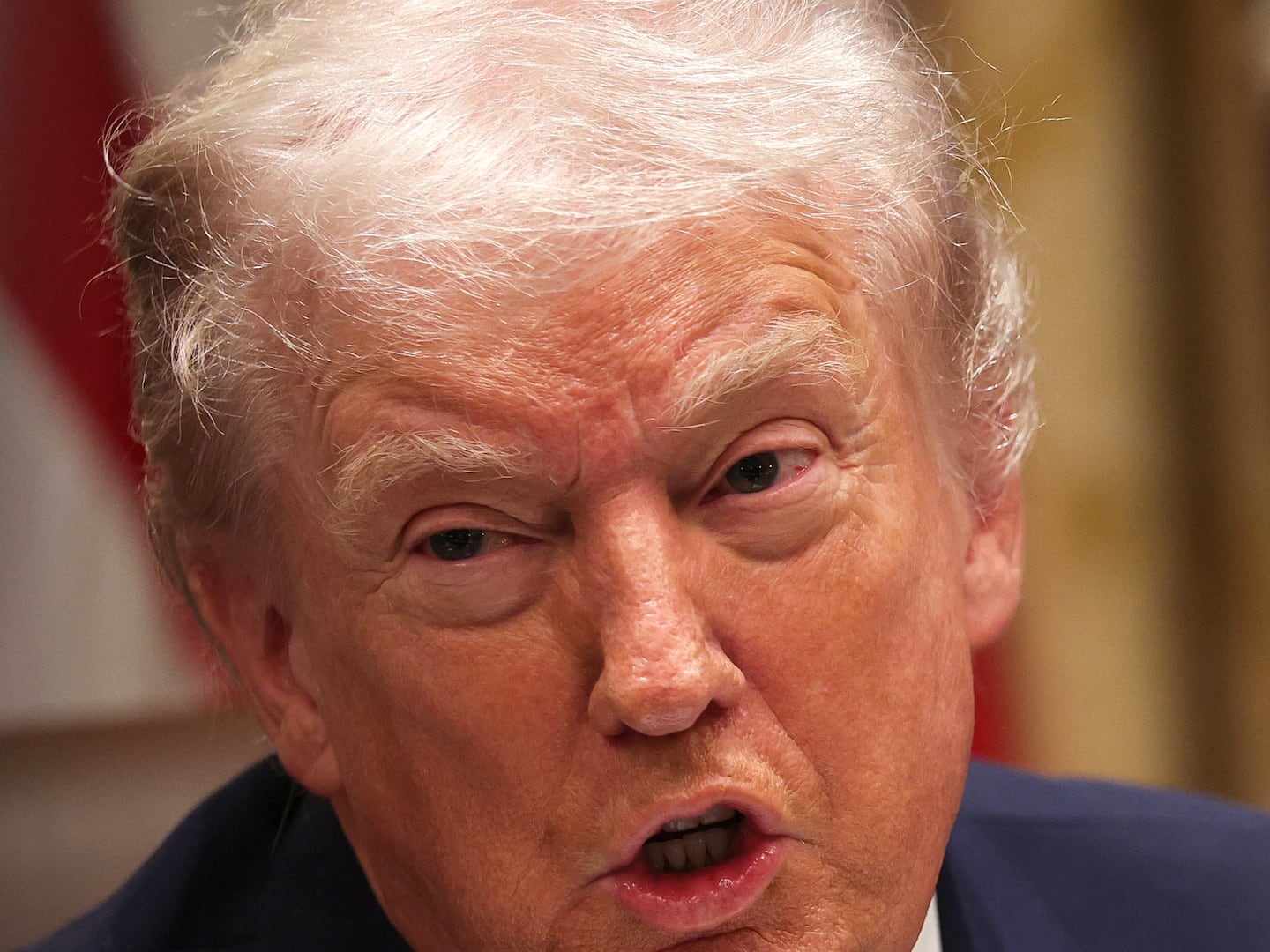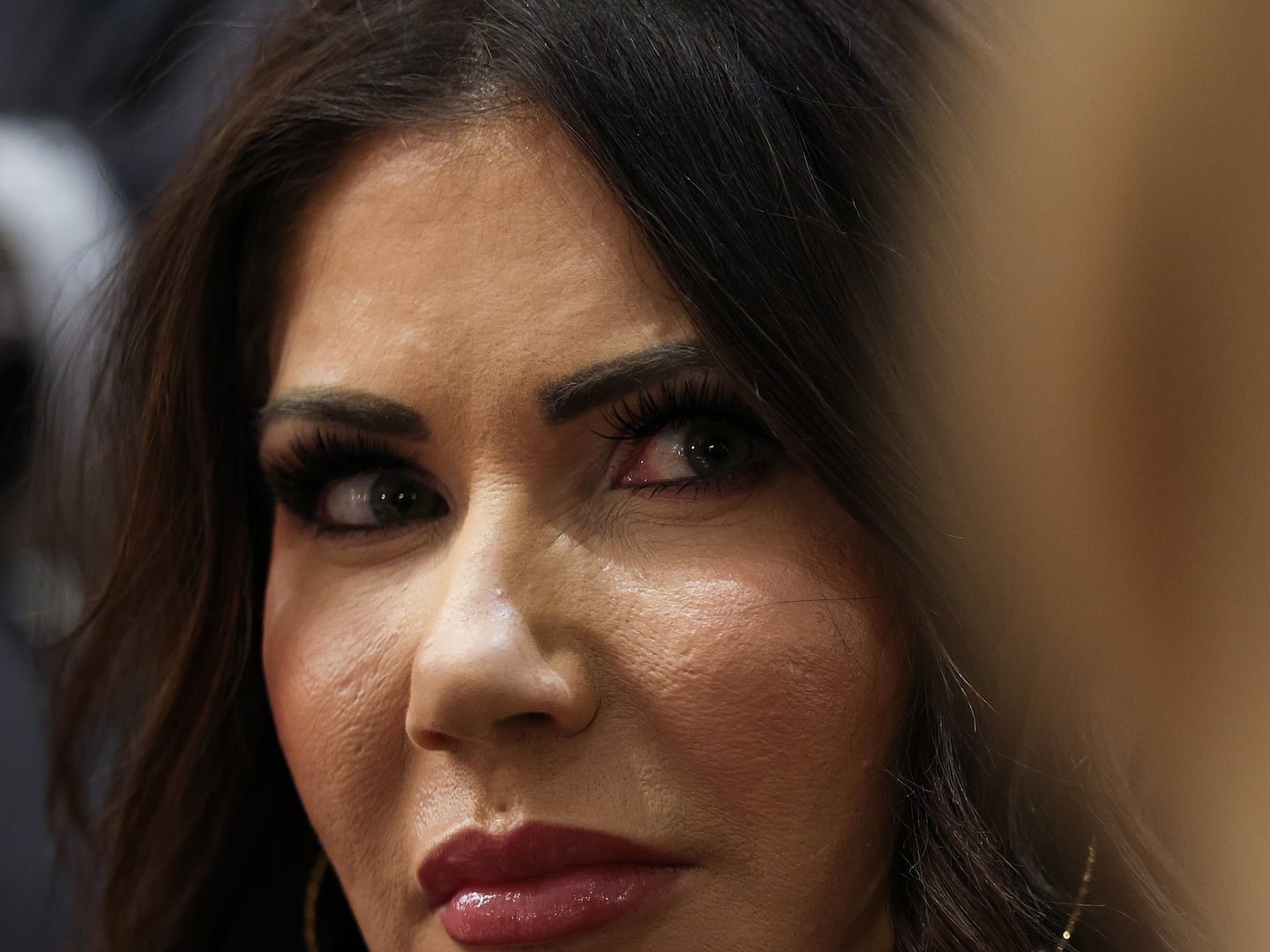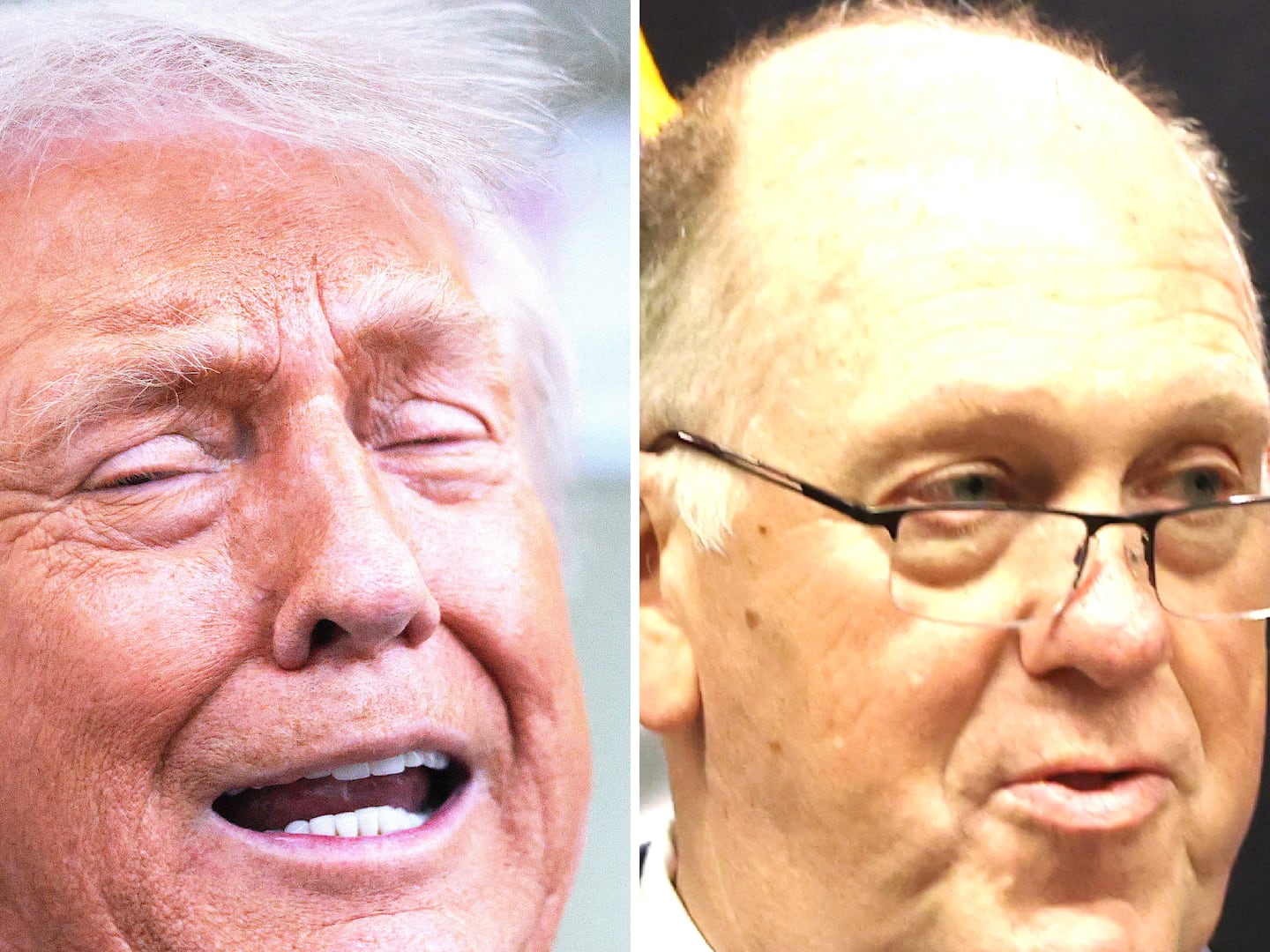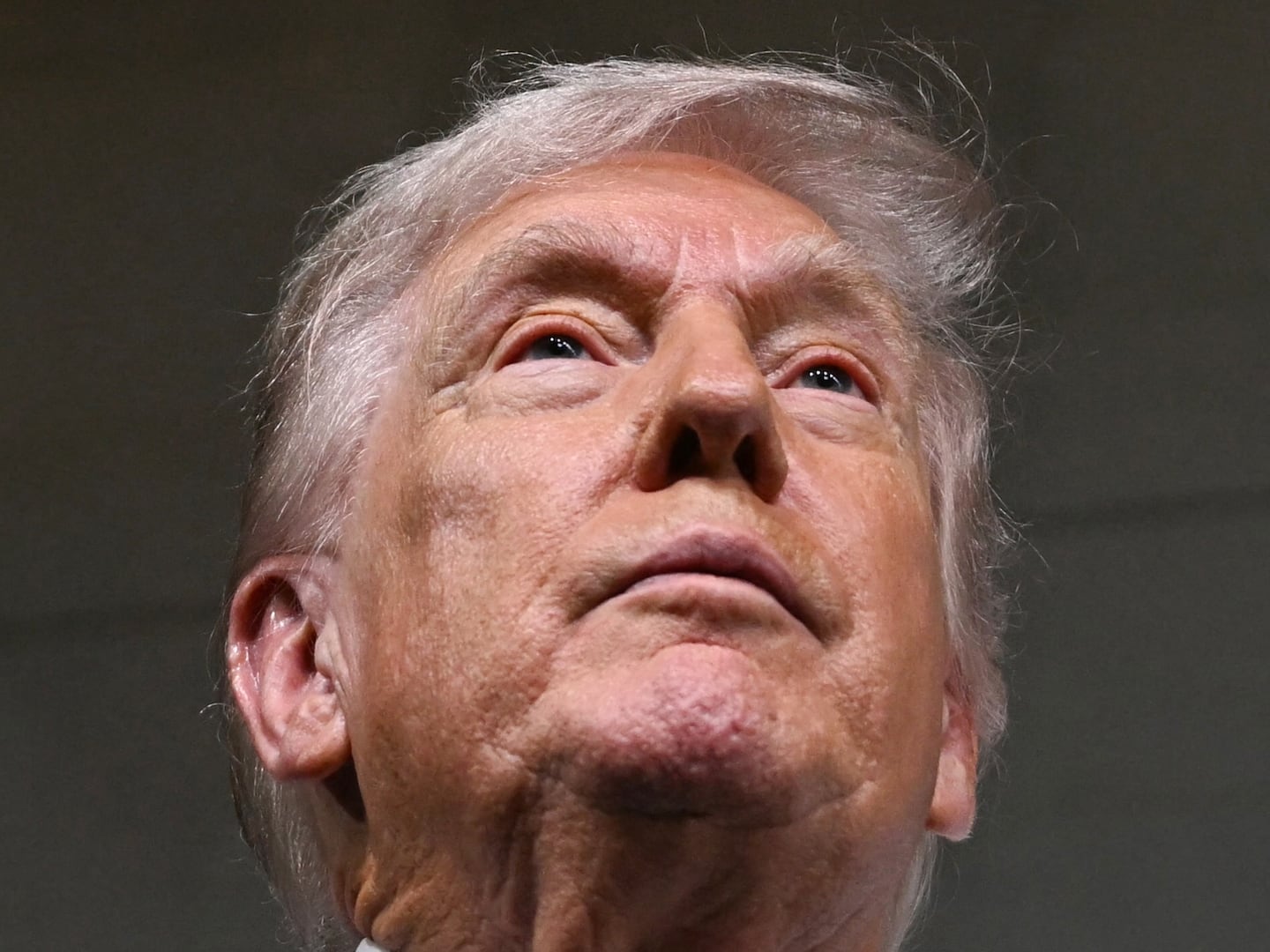The former Morning Edition host rips the network's videotaped debacle, executive blunders, and Juan Williams fiasco—but defends its federal funding. Plus, Howard Kurtz on yet another NPR sting.
After three decades at National Public Radio, Bob Edwards views the turmoil at his former employer with a mixture of amazement and disgust.
For all his complaints, Edwards says he fervently believes that NPR should continue to receive federal support in the wake of the House vote to eliminate its government subsidy and that of PBS.

“It seems cursed, doesn’t it?” he says in an interview. “It’s one thing after another.” Likening the network to “that Al Capp character who walked around with a cloud over his head,” Edwards says it has been “seriously damaged” by the mistakes that led to a high-level shakeup this week.
While this might seem like sour grapes from a man who had a bitter divorce from the institution in 2004, Edwards says he still reveres NPR as a media jewel—albeit one that he sees as tarnished by misguided management.
Edwards, who now hosts a satellite radio show for Sirius/XM, says NPR had no choice but to get rid of its top executive, Vivian Schiller: “Even if you can’t say she’s directly responsible, she’s the CEO. Something had to happen, particularly in the face of the threat of losing federal funding on the Hill.”
He has been thinking about the culture of NPR while writing his autobiography ( Voice in a Box will be published this fall) and thinks it has deteriorated. And, for Edwards, there are echoes of the way he was treated.
Speaking in the mellifluous tones familiar to millions of listeners during his quarter century hosting Morning Edition, Edwards says that NPR executive Ron Schiller shouldn’t have met with two potential donors who depicted themselves as being affiliated with the Muslim Brotherhood—even if it had been a legitimate group. Instead, it was an undercover sting orchestrated by conservative filmmaker James O’Keefe, and Schiller was videotaped describing the Tea Party as Islamophobic racists.
“What was he thinking?” Edwards says of Ron Schiller. “My God, bells and whistles should have gone off immediately. Maybe they don’t care about the rules anymore. They don’t understand that when you work for a news organization, it matters where the money comes from. There has to be vetting before you even have a meeting. The Muslim Brotherhood is a player, and you can’t be funded by a player.” For the same reason, he questions whether NPR should have accepted a $1.8 million grant from a group founded by liberal philanthropist George Soros.
The 63-year-old Edwards says he was always told there was a “firewall” between the newsroom and the sponsors, that “they simply wanted their name on NPR’s air.” Instead, in spewing opinions about the Tea Party at a fundraising luncheon, Schiller “threw in the whole damn kitchen sink—xenophobic, Christian. Oh my God, it just couldn’t be any worse.”
Edwards reserves some of his ire for O’Keefe, who came to national prominence impersonating a pimp in secretly videotaping ACORN staffers. “No one’s talking about the obvious: Lies, dirty tricks, this is Donald Segretti,” the Watergate operative who distributed forged political documents.
NPR’s handling of the Juan Williams debacle, in which the longtime analyst was fired over the phone, was “just nuts,” Edwards says. “It was knee-jerk…. That’s what he was paid for, commentary.” Edwards strongly disagrees with Williams’ remarks on Fox News that seeing Muslim-garbed people on an airplane makes him nervous, but says the real issue for NPR was that its employee was sounding off “for another organization… Particularly if you go on Fox, you’re the de facto liberal because the in-house people are coming from a different direction.”
In a larger sense, says the Louisville native, NPR has long worried about looking too liberal. “That’s what they dread the most. Man, I’m telling you, to an extreme. I think it affects their news coverage. I think they pull punches. They go out of their way to find a conservative commentator when maybe it’s not appropriate.”
During the Clinton-era debate over easing limits on media ownership, Edwards says, he did an interview on how a handful of companies would be able to dominate the radio industry—which is exactly what happened. But “they got some tool of the industry to come in behind me and say this was a wonderful thing,” which he sees as an example of false balance.
Edwards identifies with Williams in one key respect, having been abruptly informed seven years ago, with little explanation, that he was out as host of the morning show he helped launch. Soon NPR executives “were saying bad things about me to cover their butt,” he says. “They were lying about why they reassigned me, just making stuff up.” Edwards recalls hearing allegations about his reluctance to interview Bush administration officials and refusal to accept a co-host, both of which he insists were untrue. He quit soon afterward.
For all his complaints, Edwards says he fervently believes that NPR should continue to receive federal support in the wake of the House vote to eliminate its government subsidy and that of PBS. While Ron Schiller was right to concede, during the surreptitiously taped lunch, that NPR can survive without taxpayer dollars, Edwards says, “public radio still needs the federal funding, particularly in rural areas.”
The main argument against NPR, he declares, amounts to “crap.”
“The opponents of NPR are using a fiscal argument when they really want it off, they want it gone, just as Newt and company wanted it gone” when the Gingrich House zeroed out its funding. Why? “So the voices of Fox et al. can prevail,” says Edwards.
Howard Kurtz is The Daily Beast's Washington bureau chief. He also hosts CNN's weekly media program Reliable Sources on Sundays at 11 a.m. ET. The longtime media reporter and columnist for The Washington Post, Kurtz is the author of five books.






